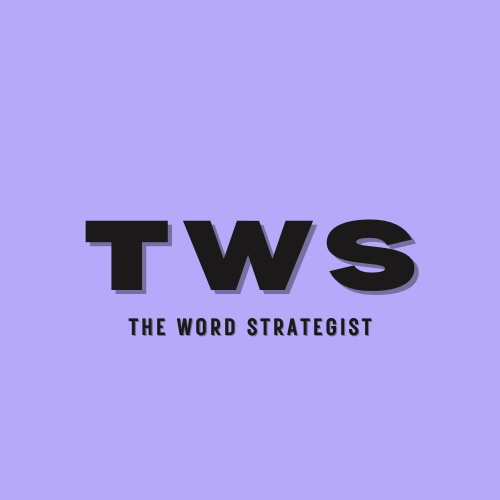If you’re a small business owner like me, or really any business owner, you might feel that an SEO strategy is a vital part of your marketing plan. Is it, though? While the answer might seem obvious, especially coming from a company that offers SEO services, the reality is somewhat murky.
Whether you should invest in SEO services depends on several factors, including your products or services, image, ability to take on new business, and, of course, your budget. Read on to see why I don’t have an SEO strategy even while I recommend that most, but not all, of my clients follow SEO best practices.
What is SEO?
SEO, or search engine optimization, is the science of tweaking your website and its content so search engines, generally Google, “see” it and list — or rank — it ahead of your competitors. I think of SEO as a marathon race with a continually evolving trail. The algorithms change often and if you take a break, or don’t adapt to the changing landscape, your search engine ranking will suffer.
What does Google look for?
Early SEO was all about keywords. While keywords are still important, today, Google emphasizes readers’ experiences. Among other things, that includes:
- High-quality content — Is the content readable, informative, trustworthy, and authoritative?
- Content length — Google doesn’t look at content length per se, but longer blog posts may keep readers engaged for longer, which is a sign of a good reader experience
- Backlinks — Are other companies linking to your copy from their websites? This adds to the air of authority
- Technical factors — Is your site fast? Is it mobile-friendly? Can Google’s crawlers quickly scan your site?
- Content freshness — Stale content quickly drops off of Google’s radar. Generate new content and regularly update the old
- Meta and title tags — Meta descriptions, tags, and titles entice readers to click
How has SEO changed?
If you’ve searched Google lately, you may have noticed more paid ads than ever. You often have to scroll to find the first organic (non-paid) listing. Clearly, Google is sending a not-so-subtle pay-to-play message.
The organizations with the most comprehensive search strategies aim to appear near the top in both paid and organic listings.
AI: The double-edged sword
While Google promises that, for now, they’re fine with AI-produced copy, it’s never good to ask AI to write a blog post for you and then call it a day. Even the best AI copy reads as soulless because, well, it is.
AI is also prone to hallucinations — or errors — and has been known to pull content from other sources. Google does not look fondly at plagiarism.
AI still needs a heavy human hand to ensure that your copy is human-centric, accurate, and original.
What is an SEO strategy?
An effective SEO strategy consists of several components. If you’re like most small business owners, you’re probably familiar with keywords, and you might even have a good idea what keywords you’d like to focus on for your business. That, however, is the tip of the iceberg. An effective SEO strategy includes:
Competitive analysis
- Research your competitors — Who ranks well in your industry?
- See what your competitors are doing — Take a look at their content, backlinks (more on those in a bit), and keywords
- Establish benchmarks — Compare your ranking to your competitors to help identify gaps and opportunities
Keyword research
- Identify keywords — What search queries do your potential customers use? For example, if you are a wedding planner, “wedding planning” would be an obvious, but highly competitive, and expensive, keyword
- Find long-tail keywords — Long-tail keywords are specific and, yes, longer. “Rustic budget destination wedding planning” is one example. As you might imagine, there probably aren’t a lot of searches for those keywords, but the term wouldn’t have much competition
Content Strategy
- Regular blog updates — Publish content consistently to keep the site fresh and engage users
- Include multimedia — Use images, videos, and infographics to make content more engaging
- Content clusters — Create pillar pages covering broad topics and link them to cluster pages addressing subtopics in detail
SEO optimization
- Meta tags — Optimize title tags, meta descriptions, and header tags (H1, H2, etc.) to include target keywords
- Content quality — Create high-quality, relevant content that answers users’ search queries. Use keywords naturally without overusing them, or keyword stuffing
- Internal linking — Ensure pages link to related content within the website to boost site navigation and spread link equity
- Image optimization — Compress images for faster loading times and include descriptive alt text containing keywords
Technical SEO
- Improve site speed — Use tools like Google PageSpeed Insights to identify issues and make improvements
- Mobile friendliness — Ensure your site is responsive and performs well on mobile devices
- Secure your site — Implement HTTPS to secure data exchange and improve trustworthiness
- Fix broken links — Regularly check for and fix any broken links to maintain user experience and search engine rankings
Link building
- Guest blogging — Write articles for reputable sites in your industry to gain backlinks. This also builds authority
- Build relationships — Partner with industry influencers or collaborate for mentions and links
- Monitor backlinks — Use tools like Ahrefs to track and disavow any toxic links that may harm your SEO
User experience (UX) optimization
- Navigation and structure — Make sure the site’s structure is logical and user-friendly
- Reduce bounce rate — Include clear calls to action (CTAs) and engaging elements to encourage users to stay on the page
- Accessibility — Ensure your site is accessible to people with disabilities by following WCAG guidelines
Monitor and adjust
- Use analytics tools — Track performance using Google Analytics and Google Search Console
- Regular audits — Conduct site audits periodically to identify and resolve issues
- Adapt strategy: Be ready to pivot your SEO approach based on performance data and search engine updates
Local SEO (if applicable)
- Google my business — Set up and optimize your profile with accurate business information
- Local citations — Ensure your business is listed consistently across directories
- Reviews and ratings — Encourage customers to leave positive reviews to improve local search rankings
Can smaller companies compete?
SEO best practices require a lot of work. Larger organizations retain a competitive advantage because they have entire SEO and content teams to handle the above steps. But, that doesn’t mean small companies can’t compete.
The best thing about SEO is that as long as you adhere to the best practices, it is a level playing field. In fact, small businesses have certain advantages. For example:
- Niche product lines — If your product lineup is relatively specialized, you will only have to rank on a handful of keywords and your company will appear more authoritative
- Narrower target demographics — Larger companies often target much larger audiences than smaller ones. The more selective your criteria, the easier it is to build brand loyalty and offer a more personalized experience
- Loyal fan base — A more personalized experience leads to better engagement and more positive online reviews
When you need SEO
If you have an e-commerce site or offer highly competitive B2C services (such as a hair salon or moving company), SEO is vital to putting your company in front of the right customers.
Why I don’t have an SEO strategy
I don’t have an SEO strategy because few businesses hire copywriters from Google, and from what I’ve seen, most Google copywriter listings are for job boards and no-human-touch AI writing bots. Personal relationship building is far more beneficial for both me and my customers. That said, I follow most SEO best practices because they are copywriting best practices.
If you’d like to learn more about whether an SEO strategy might work for you and how I can help, shoot me an email.

I have more than 15 years of experience elevating products and brands through world-class copy and SEO content


